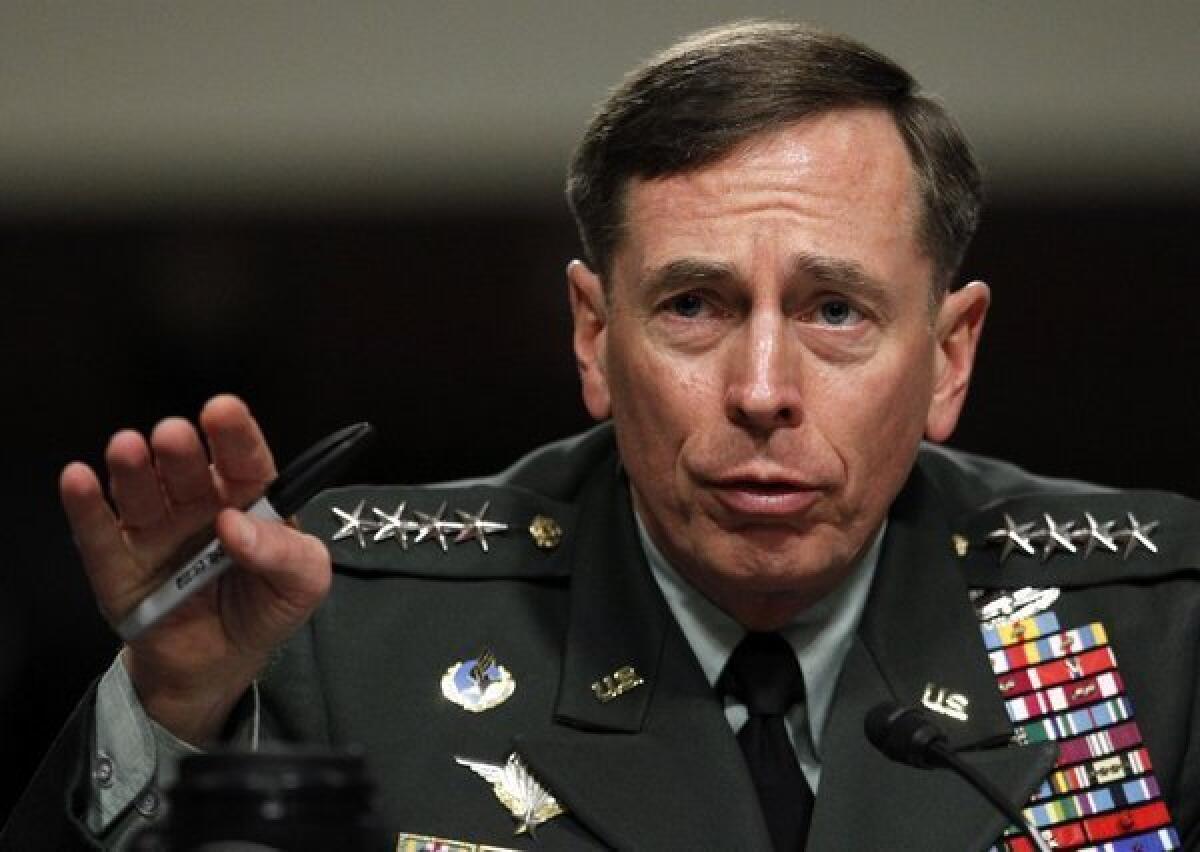Petraeus: A necessary man

âThe graveyards are full of indispensable men,â itâs often said, meaning that few are genuinely indispensable. David H. Petraeus was one of the few, which is why his loss for the U.S. government, after his admission of adultery, is so tragic.
This is not to imply that there are not other capable generals or intelligence leaders. But Petraeus was highly unusual, perhaps unique, for the grasp he displayed of modern warfare in all of its bewildering complexity. This was a task for which he had been preparing since his days as a West Point cadet in the 1970s, when he showed an early fascination with the Vietnam War, which was just then ending. He avidly read the classic works of Bernard Fall, Jean Larteguy, David Halberstam and other experts on the subject. He wrote his Ph.D. dissertation on the war, a decidedly unfashionable focus in the 1980s, when the U.S. military was eager to get out of the counterinsurgency business altogether.
Petraeus knew, however, that warfare had changed: Conventional engagements against mirror-image adversaries would not be the post-Vietnam norm. He got the chance to show that he could put his academic understanding into practice when he entered Iraq as the commander of the 101st Airborne Division in the spring of 2003, his first combat experience.
SLIDESHOW: Political sex scandals
He did fine on the âmarch upâ to Baghdad, but he truly excelled when called upon to garrison northern Iraq. He did not limit himself to purely military concerns because he understood that generating electricity and electing mayors would be as important as firing bullets and missiles, if not more so. More-hidebound officers looked askance at a dynamic young division commander who seemed to be getting out of his âlane.â But Petraeusâ understanding of what it took to prevail would be amply vindicated when he was called upon to rescue a failing war effort as the top commander in Iraq in 2007.
His success in reducing violence more than 90% was made possible by the extra 30,000 U.S. troops dispatched by President George W. Bush, but as Petraeus often pointed out, if those troops had been used as before, the surge would have failed. Petraeus adopted a new concept of operations, one that focused on pushing troops to live in small combat outposts in the middle of population centers where they could provide 24/7 security from insurgent intimidation. At the same time he orchestrated many other lines of operation, including encouraging the Sunni Awakening movement, increasing electricity production and pressuring Prime Minister Nouri Maliki to crack down on corrupt officials.
Petraeus was particularly adept at information operations. He did not engage in crude propaganda. I served as an informal advisor to him in Iraq and Afghanistan, and I not only interviewed him but also watched as others interviewed him. He was frank, but he avoided indiscretion. Amazingly, despite the countless interviews he gave, he never got into hot water over unauthorized leaks, yet he still won the trust and admiration of journalists. This is no small skill to master for a general serving a democratic republic, and it is one that few, if any, of his peers can match.
The U.S. Army, like all armies, is suspicious of outsiders, especially intellectuals and journalists. Petraeus, once a graduate student at Princeton, had a comfort level with scholars and reporters that enabled him to draw them into his efforts, whether to help write a field manual on counterinsurgency or to help provide independent feedback on the success or failure of his campaigns in Iraq and Afghanistan. Critics claimed that he created Potemkin village tours for outsiders, but this was far from the truth. In 2007-08, he sent me and others not only to counterinsurgency success stories such as Ramadi but also to still-dangerous areas such as Mosul where Al Qaeda remained strong. Petraeus was confident that presenting a warts-and-all picture would ultimately aid his efforts by increasing public understanding, and he was right.
Petraeus also urged young officers to get outside their intellectual comfort zone by going to civilian graduate schools and reading widely. Quite a few of his proteges followed his advice â including, it must be said, Paula Broadwell â but few of them could hope to match his success, in no small part because the Army, sadly, still regards excessive intellectualism as a debilitating defect. Perhaps Petraeus could have remade the military if he had been appointed chairman of the Joint Chiefs of Staff â a post he had earned â but President Obama preferred to shunt him off to the CIA where he would play a less public role. Now he is gone from the CIA too, and it is doubtful that the military will see his like for a long time to come.
Max Boot is a senior fellow at the Council on Foreign Relations, a contributing editor to Opinion, and author of âInvisible Armies: An Epic History of Guerrilla Warfare From Ancient Times to the Present.â
More to Read
A cure for the common opinion
Get thought-provoking perspectives with our weekly newsletter.
You may occasionally receive promotional content from the Los Angeles Times.










